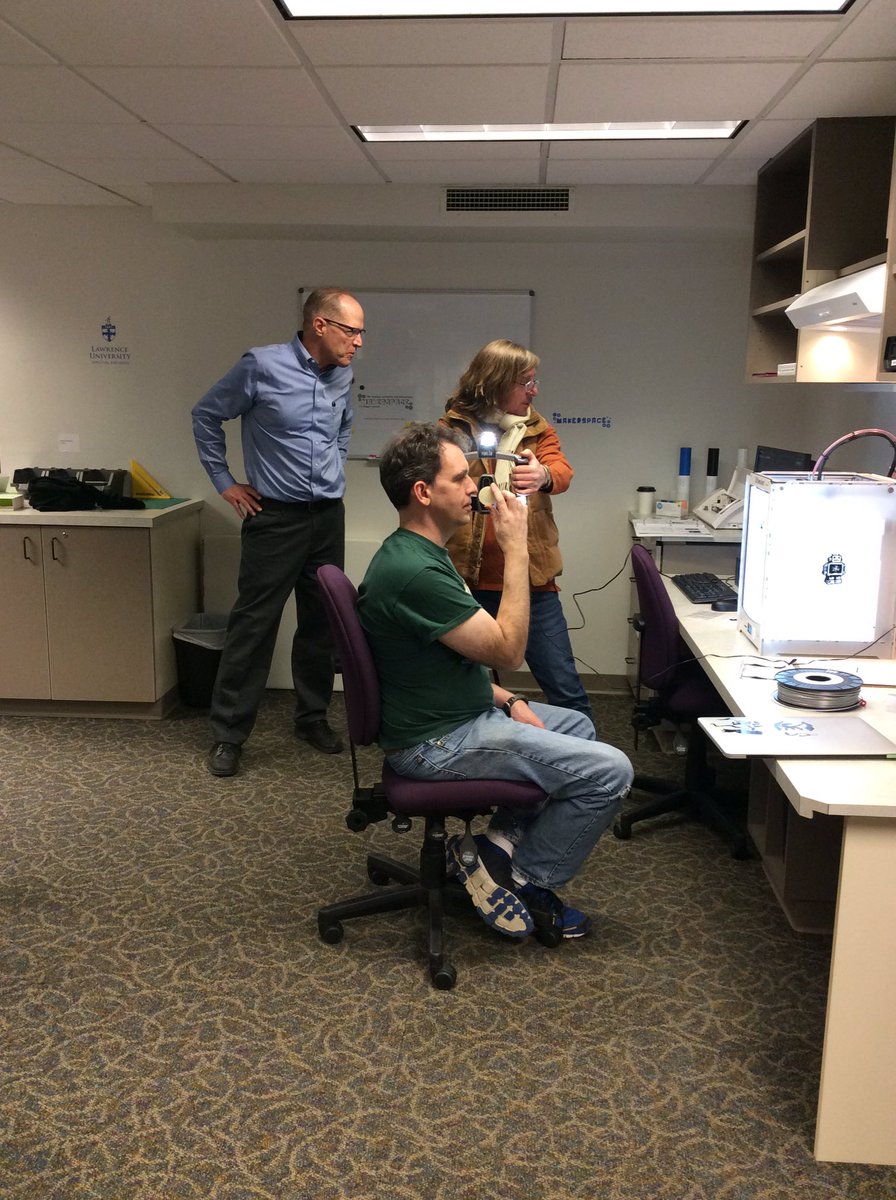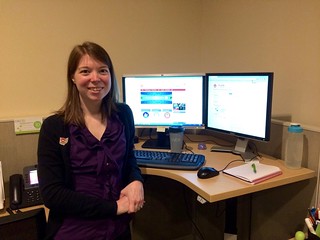We just love the feeling of a new term, when minds and notebooks are fresh and the work feels manageable. Staying abreast of readings and assignments and spending quality time with coursework from the very beginning of the term will go a long way toward avoiding stress later, when papers and projects and finals are looming.
Are you feeling motivated to start your spring term strong?
We can help!
We offer group study spaces throughout the first and second floors, including helpful tools like moveable white boards and standing desks. Why not create a study group during the first week of the term and begin meeting regularly to discuss readings and to further analyze ideas presented in class?
For more group study options, check out a private group study room on the second or third floors, where you will find large blackboards and whiteboards for parsing difficult concepts or formulas.
The second floor group study room has a computer and a large screen monitor, prefect for practicing presentations or compiling and sharing large amounts of data.
For times that you’d rather study alone, the third and fourth floors offer quiet space and individual study carrels perfect for deep reading, research, reflection, and writing.
Speaking of research, we offer a plethora of books, over 20,000 music scores, 103,000 microforms and a digital microform reader and scanner, tons of electronic resources organized by subject, periodicals and newspapers, videos, and many government documents.
Becoming familiar with the stacks and with our online resources and digital collections before midterm madness is a great way to ensure your academic success and to mitigate stress later.
If you need assistance navigating all of our resources or are in need of research guidance of any kind, our friendly reference librarians are available to assist you. You can even schedule a research appointment and meet with a librarian one-on-one! The earlier you start a dialogue with the librarians about a particular project, the better. And even without a project on the horizon, the librarians would love to take a few moments to get to know you. Stop by the reference desk to say hello.
The Mudd is here to help you succeed! We can also help to reduce your stress and maximize your experience at Lawrence. Start your spring term strong by spending some time with us. Come tenth week, you’ll be glad that you did.
 Have you heard about the new Lawrence University Interdisciplinary Makerspace for Engaged Learning? It is an exciting space for hands-on learning and creation, located on the first floor of the Mudd Library. A makerspace is any space that encourages making, tinkering, and creativity. Some are focused more on technology, some on manufacturing, some on building, and some on crafting. Our space is a little of each of those with an academic focus. The LU makerspace includes two 3D printers, a desktop 3D scanner, a handheld 3D scanner, an electronic cutter, a sewing machine, and supplies for painting and making collages (
Have you heard about the new Lawrence University Interdisciplinary Makerspace for Engaged Learning? It is an exciting space for hands-on learning and creation, located on the first floor of the Mudd Library. A makerspace is any space that encourages making, tinkering, and creativity. Some are focused more on technology, some on manufacturing, some on building, and some on crafting. Our space is a little of each of those with an academic focus. The LU makerspace includes two 3D printers, a desktop 3D scanner, a handheld 3D scanner, an electronic cutter, a sewing machine, and supplies for painting and making collages (

